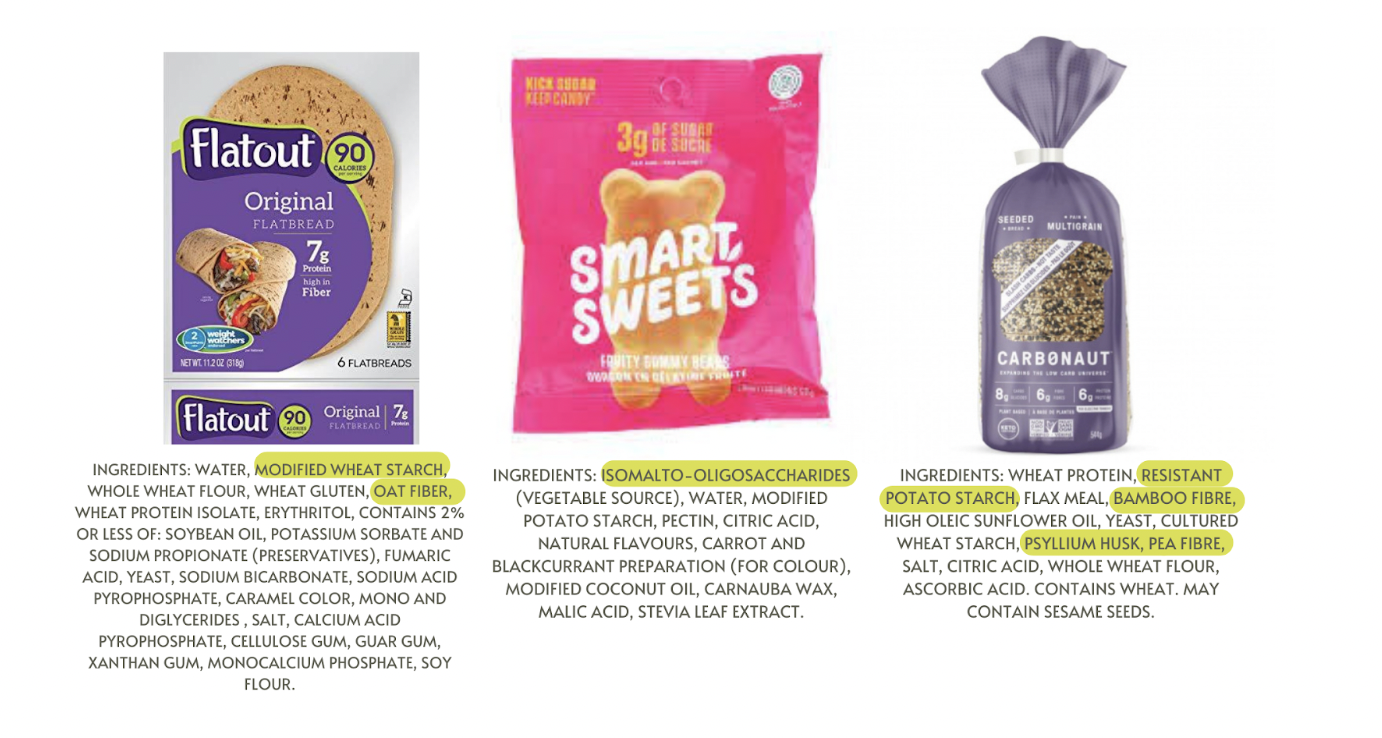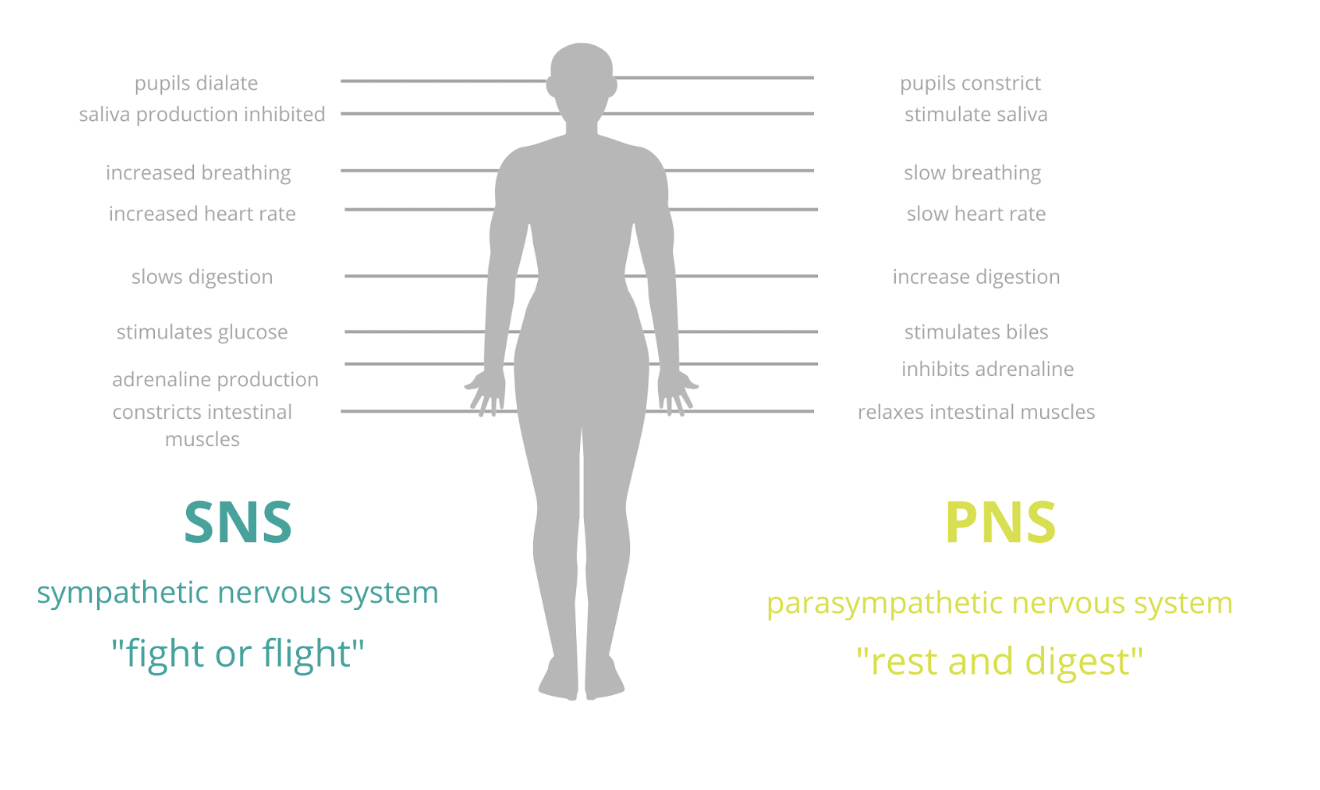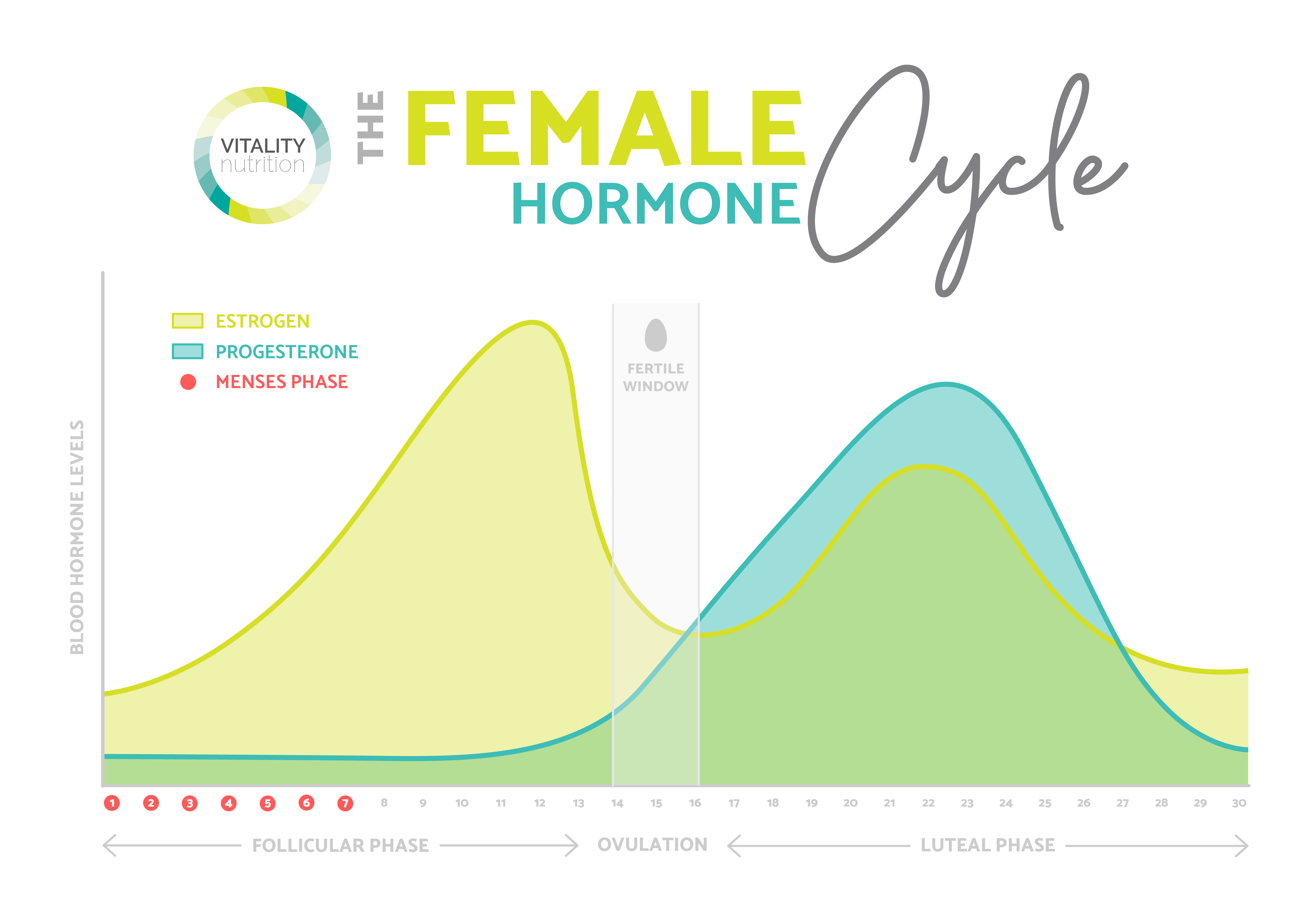Why Your Bloated & Tips From a Dietitian to Promote Comfort
Mar 02, 2023
As Registered Dietitians, we recognize that bloating can be a natural side effect of breaking down and absorbing the food that we eat. Subtle bloating can indicate our stomach is filled with food and beneficial gut bacteria are being fuelled! However, if you're experiencing more gas, swelling, or discomfort than usual it may be valuable to examine food and lifestyle choices to improve digestive health. In this article and accompanying podcast, we'll review the root cause of bloating and actionable tips to promote comfort!
Listen to the Podcast episode here!
Bloating is a tight, gassy, or full feeling in our abdomen. It's sometimes paired with distension, which is the physical expansion of our abdominal area. In many instances, the symptoms of abdominal bloating can be diminished or even prevented with a few simple nutrition and lifestyle tweaks. However, in other cases, the root cause of bloating can be more complex that require the support of a physician and/or a Registered Dietitian who specializes in digestive health.
Red flags to be aware of
It's best to work with a healthcare team for individualized support, but it's especially important to alert a professional if any of the following red flags are experienced.
- Vomiting.
- Difficulty swallowing.
- Unintentional weight loss.
- Presence of blood in stool.
- Prolonged changes in bowel movements.
- Disordered body image or a negative relationship with food.
Eight Root Causes of Bloating
Bloating is one of the most common symptoms related to the digestive system with many potential culprits. Determining the root is especially important for eliminating symptoms and promoting comfort. Let's explore eight root causes of bloating and discomfort:
#1. You have excess air in your stomach
Swelling excess air can be a simple factor contributing to bloating and distention. What we consume and how we consume it can increase the amount of air we swallow which can build up in the digestive tract and lead to uncomfortable gas. Some example:
- Carbonated beverages: carbonated beverages contain gas bubbles that can cause distention and discomfort. In this case, eliminating or reducing carbonated beverages can promote comfort.
- Drinking through a straw: can increase the amount of air we swallowed. In this case, the solution is to avoid drinking through a straw or to recognize that it can exacerbate symptoms of distentions and bloating.
- Chewing gum or sucking on candies: we swallow more air when we chew gum or such candies. Limiting or avoiding these habits can promote comfort.
- Eating quickly: we tend to swallow more air when eating quickly. Slowing down our pace of eating can also help us eat more mindfully which improves digestion as discussed in an upcoming section.
#2. You are experiencing a food intolerance
Food intolerances can cause bloating when nutrients are poorly absorbed leaving them to be fermented by bacteria which then produces gas. In other cases, the food intolerance or allergy causes inflammation or an autoimmune response where the gut is damaged and digestion and absorption is impaired. Common food intolerances or allergies include:
- FODMAP intolerance (an acronym for "fermentable oligosaccharides, disaccharides, monosaccharides and polyols"): FODMAPs are short chain carbohydrates that are poorly absorbed in the small intestine, leaving them to be fermented by bacteria which then causes gas. Some of the more common offenders include certain veggies, garlic, some fruits, beans & legumes, dairy, wheat, honey, and more. However, It’s important to note that sensitivity to high FODMAP foods is highly individualized – meaning that you could be sensitive to certain high FODMAP foods in specific quantities but be able to tolerate others in higher quantities. An elimination diet with the support of a Registered Dietitian is a strategy to determine intolerances through the elimination and reintroduction of suspected offenders. Working with a nutrition professional is key when undergoing an elimination diet to ensure it is undergone correctly and that key nutrient needs are being met through the elimination phase!
- Lactose intolerance: in this case, the body is not producing the enzyme (ie. lactase) to breakdown the natural sugar in dairy (ie. lactose) which causes fermentation of the lactose sugar in the gut. In some cases, the individual may choose to completely eliminate dairy to improve digestive health and comfort. In other cases, one might take a digestive enzymes (eg. lactase) or choose lactose-free foods so that they can comfortably consume lactose-containing foods.
- Celiac or non-celiac gluten sensitivity: In celiac disease, gluten causes a reaction that damages the lining of the small intestines. Bloating and gas are among the collection of digestive symptoms experiences when an individual with Celiac disease consumes gluten. The term non-celiac gluten sensitivity is used to describe the clinical state of individuals who develop symptoms, including bloating, when they consume gluten-containing foods and feel better on a gluten-free diet but do not have celiac disease.
DIETITIAN NOTE: In some cases, the introduction of a new food can feel like a food intolerance. For example, if you have not consumed lactose-containing foods for a long time (eg. dairy) your small intestines will not effectively produce the lactose enzymes when the dairy food is consumed. In this case, you may experience significant gas, bloating, and discomfort. However, with regular exposure, the small intestines will increase production of the lactase enzyme to digest and absorb the lactose. With this concept in mind, it is important to be wary of assigning a newly ingested food as a 'food intolerance'. Oftentimes, the small intestine and microbiome require consistent exposure to the food to produce the necessary enzymes and gut bacteria to effectively digest and absorb the nutrients in the food.
#3. You are constipated
Being backed up can build on abdominal pressure and may promote increased gas as bacteria have more time to ferment foods. If constipation is the culprit of the bloating and discomfort you are experiencing, consider these five tips.
- Eat enough fibre (but not too much): plant-based foods like beans and lentils, avocado, nuts and seeds, whole grains like oats, starches like potatoes, squash, vegetables, and fruits are all rich sources of fibre. Building these foods into meals and snacks will ensure you obtain the fibre your need to achieve regular bowel movements. In some cases, too much fibre from food, supplements, or food products (eg. protein bars) can also contribute to constipation alongside cramping, bloating, and discomfort. Working one-on-one with a Registered Dietitian can help you find the 'fibre sweet-spot' for your digestive health goals.

- Consume adequate fluids: Most adults need at least 2L of fluid each day for optimal hydration and to lubricate the digestive tract for regular bowel movements. Individuals with a high fibre diet benefit from even more fluid as certain types of fibre (ie. soluble fibre) absorb water in the GI tract. If you are new to consuming fibre, drink more fluid than you normally would to promote digestion and comfort.
- Move your body: As Registered Dietitians, we have found physical activity to be an effective strategy to stimulate regular bowel movements. Adopting a regular exercise routine or simply going for a walk is a strategy to encourage gut motility!
- Eat breakfast: eating breakfast in the morning will encourage your bowels to get a move on by stimulating the reflex that causes waste to move through the gut. Not to mention, breakfast is a valuable time to consume fibre and fluid which both assist in achieving regular bowel movements!
- Eat enough: Lower energy (ie. calorie) consumption can lead to constipation by decreasing gastrointestinal motility. Eating enough is a strategy to add bulk to stool, meet fibre requirements, and stimulate the reflex that allows waste to move through the gastrointestinal tract.
#4. You are eating foods that are difficult to digest
Foods that are harder to break down or don't absorb well can promote discomfort, especially if their consumption is quickly increased Some specific examples of foods that are difficult to digest and tips to promote comfort:
- Fibre: Unlike other food components such as fats, proteins or carbohydrates — which your body breaks down and absorbs — fibre isn't digested by your body. This is mostly good news! The undigested fibre adds bulk to stool and fuels beneficial gut bacteria that promote motility and digestion. However, consuming high amounts of fibre can cause discomfort. Tips to promote comfort when eating high-fibre foods:
- Increasing your fibre intake slowly
- Consume adequate fluids to promote motility
- Reflect on your personal 'sweet spot' for fibre
- Beans and lentils: beans and lentils are a source of fibre, protein, and key nutrients like iron and zinc. However, the fibres and oligosachharides found in theses pulses make them difficult to digest. Tips to promote comfort when eating beans and lentils:
- Start slow by introducing small servings of beans and lentils (eg. 1/4 cup) and advance to overtime to give the small intestine and microbiome time to produce the necessary enzymes and bacteria to break down the food
- Try gentler legumes first like black beans or lentils which have a lower oligosaccharide content compared to chickpeas and white beans.
- Increase your fluid intake to aid in gut motility with the increase fibre consumption from the high-fibre legumes.
- Rinse canned legumes to remove gas-promoting oligosaccharides leached into the water
- Soak and prepare dried legumes which can reduce the oligosaccharide content of the legumes to improve digestibility and comfort.
- Cruciferous vegetables: include broccoli, cauliflower, kale, Brussels sprouts, and more. Cruciferous vegetables are a great source of fibre, key nutrients like magnesium, and DIM which may influence estrogen metabolism in the body. However, cruciferous vegetables can cause gas and bloating for many. As Registered Dietitians, we've found that cooking cruciferous vegetables and/or eating smaller quantities can promote comfort while enjoying these nutritious vegetables.
- Sugar alcohols: Sugar alcohols are found naturally in plants but can be made synthetically as well. You'll find them in chewing gum, sugar-free candy, protein bars, and processed foods under names including sorbitol, lactitol, xylitol, mannitol and typically anything else with an "ol" ending. They are used to offer a sweet taste without the sugar and also reduce calories because they are not well absorbed by the body. But because sugar alcohols aren't completely absorbed they enter the large intestine and ferment which causes bloating and then can also have a laxative effect if eaten in larger quantities.
- Synthetic fibres: Synthetic fibres are often added to foods to boost the fibre content and/or lower the net carbohydrate count. You’ll often see them added to foods marketed as low carb or keto like smart sweets, Carbonaut bread, and protein bars. Some words to look for on the label include inulin, chicory root, isomalto-oligosaccharides, psyllium husk, bamboo fibre, and others. Usually if you see the word ‘fibre’ in the ingredient list it means it is an added fibre versus a naturally occurring fibre. These synthetic fibres can cause bloating by either increasing fibre intake beyond levels that are comfortable or by moving into the large intestine undigested which causes fermentation and gas production. Symptoms can include bloating but also cramping or constipation.

#5. You have excess fluid drawn into your gut
Excess water being pulled into the gut can cause bloating. For example, an excess intake of refined carbohydrate and salt draws water into the gut. So if you eat a meal that is higher in added sugar, carbohydrate, and/or salt you may feel distention and bloating. This isn’t to say to avoid carbohydrates and salt - they are both a part of a balanced intake. However, managing your intake of carbohydrate and salt can be helpful if bloating and discomfort is chronic.
As Registered Dietitians we also believe it is empowering to understand that meals that are higher in refined sugar, carbohydrate, and/or salt can be a part of a balanced intake when put into context. Read more about our 'fuel the body, feed the soul' philosophy here and find ease in knowing that bloating can be a side-effect of digesting certain meals. In most cases, your body has the ability to digest your meals and return to a comfortable baseline within a few hours!
#6. You are stressed
We’ve all experienced that feeling when we’re nervous. Those “butterflies in the stomach” show that our brain and digestive system are directly related. When we’re stressed, our stomach is affected too. The gut is often referred to as the “second brain” because the neurons and neurotransmitters that extend along the gut are the same as those found in the brain and spinal cord.
When we’re stressed, our brain activates the sympathetic nervous system. The sympathetic nervous system is our flight-or-fight response: it prepares the body to protect itself against imminent danger by conserving functions that aren’t immediately needed for survival. That includes digestion. The emptying of the stomach is delayed which can lead to digestive symptoms including bloating.

Recognizing the impact of stress on the digestive system is important when it comes to getting to the root cause of bloating. For many, managing stress is an important piece of the puzzle when it comes to experiencing digestive comfort.
#7. It’s that time of the month
The rise in progesterone hormone after ovulation and leading into menses can not only contribute to a feeling of bloating from some water retention, but often results in constipation which can further exacerbate symptoms of gas, bloating, and abdominal discomfort. Tracking your cycle to understand these natural shifts in digestion is important. If symptoms across the menstrual cycle are impacting your quality of life or daily activities of living then it may be important to seek support from a trained professional and explore options to support the delicate balance of hormones across your cycle.

#8. You have a digestive health disorder
If you ruled out all of the above and you are still experiencing bloating, it could be a sign that there may be a more serious gastrointestinal disorder going on.
Some common digestive disorders that can cause bloating include:
- IBS (ie. irritable bowel disease)
- IBD (ie. inflammatory bowel disease such as Crohn's Disease or Ulcerative Colitis)
- Celiac disease
- Potential infections (eg. H pylori, SIBO, C. Diff, Candida, parasites, or others)
Medications also often have side effects which sometimes include undesirable digestive symptoms. It's best to reach out to a medical professional or registered dietitian who specializes in digestive health for personalized support.
TAKE-AWAY
While bloating can be a normal part of the digestive process, if you experience chronic gas, bloating, and abdominal discomfort that impact your quality of life then it may be time to make a change. While we hope these tips help you find digestive comfort, in many cases it may be important to reach out to a Registered Dietitian for one-on-one investigation, guidance, and support.
Listen to the Podcast episode here!
Ready to bring the evidence-based nutrition support of our Registered Dietitians into your kitchen?
Hungry for more?
Get recipes, tips, and updates from the Vitality Nutrition team straight to your inbox!
Don't worry, your information won't be shared.

